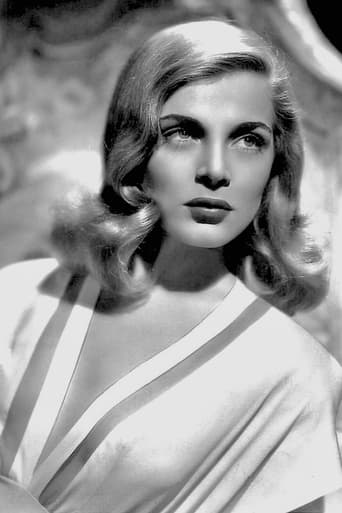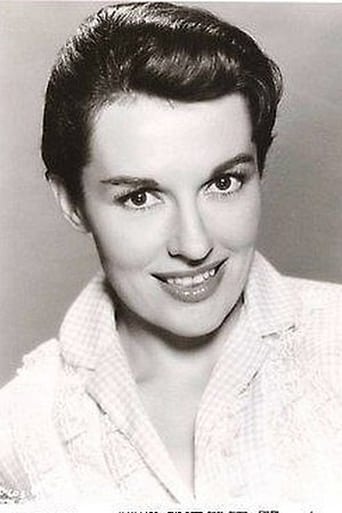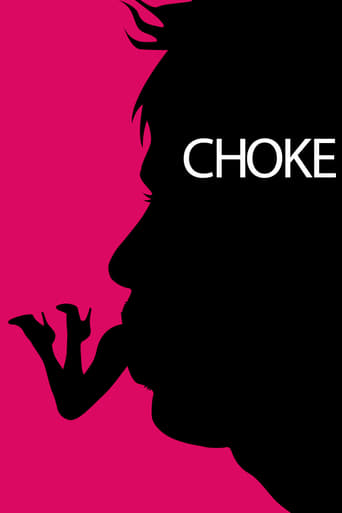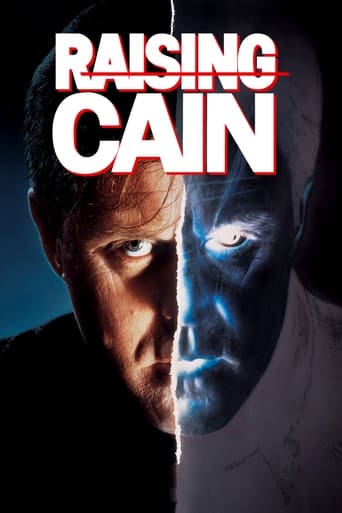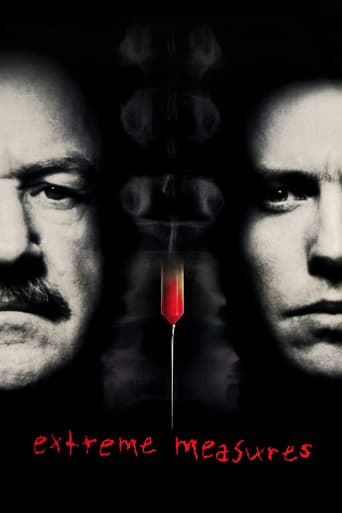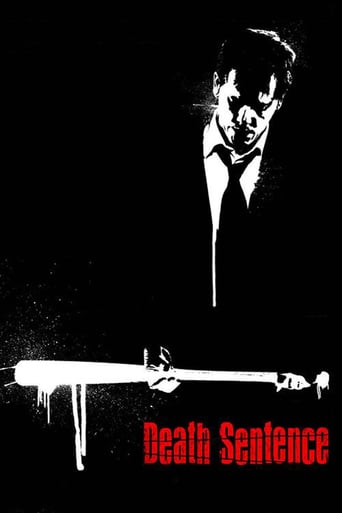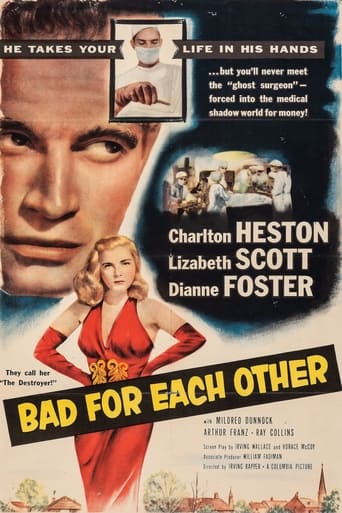
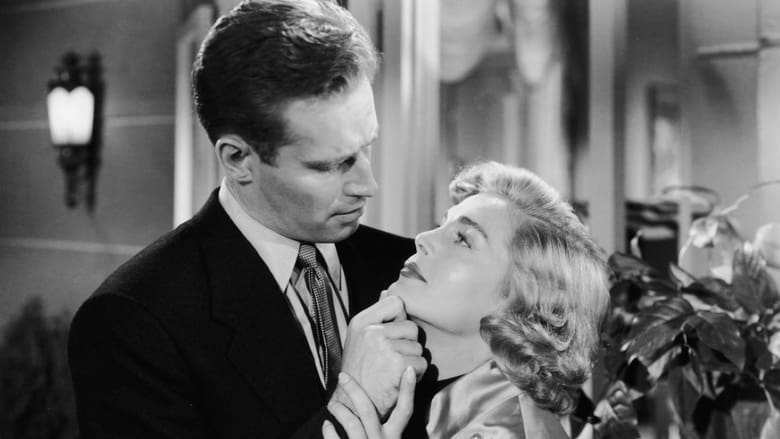
Bad for Each Other (1953)
A doctor returned from the Korean War must choose between joining a glamorous practice and helping the poor.
Watch Trailer
Cast
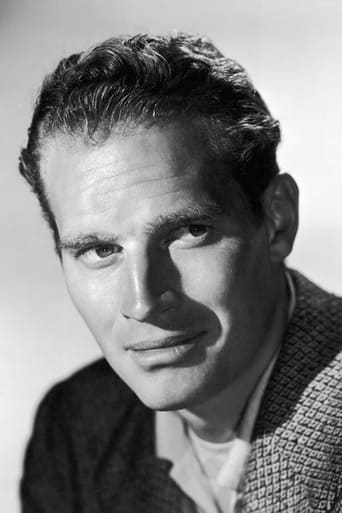
Similar titles
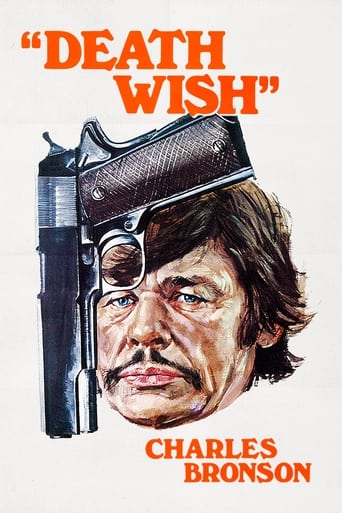
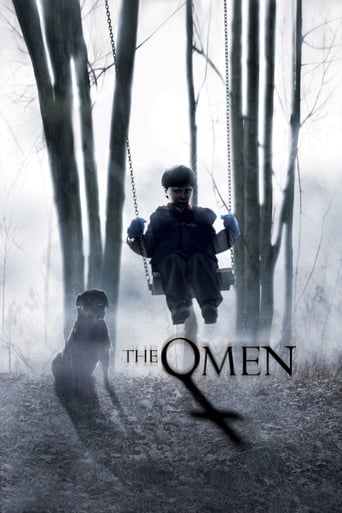

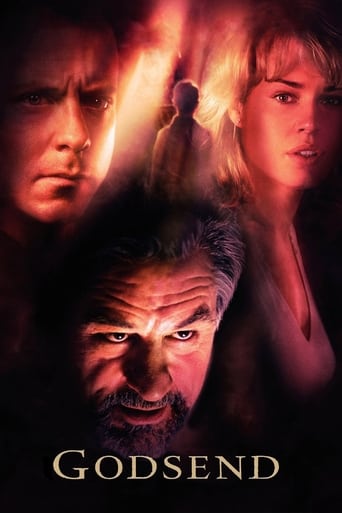
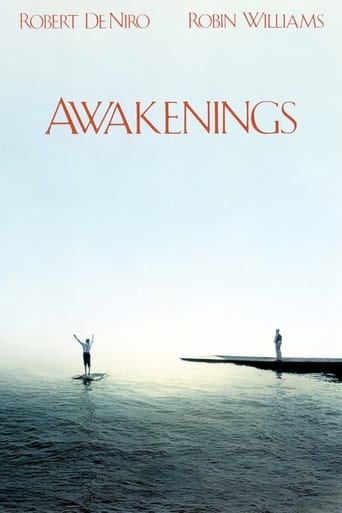
Reviews
Slow pace in the most part of the movie.
This is one of the best movies I’ve seen in a very long time. You have to go and see this on the big screen.
Strong acting helps the film overcome an uncertain premise and create characters that hold our attention absolutely.
By the time the dramatic fireworks start popping off, each one feels earned.
Usually my rating comes pretty close to the "group" rating here. But this time I must disagree and give this film a considerably higher "7".I was not expecting much, partially because since Charlton Heston's NRA rants he had fallen out of favor with me, although I still believe his performance in Ben-Hur was one of the great performances in cinematic history. But there have been few other films I really enjoyed him in. But, Heston's performance here is top notchAs one other reviewer here pointed out, it isn't far into the film before we know that the basic plot is that a doctor who is tempted to a rich practice for hypochondriacs will, eventually, return to his true calling. Okay, but then again, we figure out the gist of most movies pretty quickly. What makes a film interesting is the way it gets to a conclusion we've already figured out. On the one hand, some aspects of the story -- such as the coal mining aspect -- are a little different. There are also some aspects of the film that just don't ring true...such as the mother's reluctance to have her son be successful; that is a bit overdone. And, I don't think the screenwriters did Lizabeth Scott's role any favors; she's too callous. But, at least she's interesting here. Dianne Foster as a dedicated nurse was good, and it's always nice to see Mildred Dunnock (here as the mother; too bad the role was not more realistic). Arthur Franz is excellent as a dedicated young doctor. It's always a plus to have veteran character actor Ray Collins in a film, and he is wonderful as ever here. Same for Marjorie Rambeau as a rich, matronly type. Lester Matthews and Rhys Williams do fine as a slick city-type doctor versus a country doctor.So, from my perspective, this is a pretty decent movie. Perhaps not one for the DVD shelf, but definitely worth a watch (or two...as I did).
Bad for Each Other (1953)Charlton Heston gets a bad rap sometimes--maybe that's what you expect after "Planet of the Apes"--but here he is the charming, confident, larger than life young man that made him famous. Yes, it's a B-movie, but it's a very strong performance for Heston and he is surrounded by a cast that is decent (Lizabeth Scott not at her best, which is saying a lot) to terrific (Ray Collins as the big business power guy he plays so well). The "business" at the center is a coal mine in a small Pennsylvania town, and Heston plays a doctor, Tom Owen, getting out of the military in a pseudo-noir kind of echo. Owen's dilemma is a worldly one--whether to doctor rich old women with frivolous pains or to work for the miners in their lower class afflictions.And it is Lizabeth Scott, a pampered (and unabashedly pampered) rich girl who snags our hero, and so against his initial instinct Heston goes the rich and lazy way. But of course the coal mining town is all around him, and reminders pop up now and then. It's a great problem for a movie, and it's worked out with fairly predictable logic, so there is nothing to really fault here. Except that very predictability. Even Scott is a bit bland, not really getting to run her coolness to true ice. Some of the side characters are well developed, surprisingly (a "good" doctor untainted by money and an old woman who is wiser than she lets on at first), and director Irving Rapper (who should have been a music star in the 1990s with a name like that) makes it pop pretty well.The less than sterling reputation of this movie is unwarranted, but it may be a result of higher expectations than this kind of movie deserves. Yes, the plot is boilerplate stuff, but so are half the movie plots out there. And Heston is sort of terrific. Yes, he plays a type, and he doesn't give the angst some other actor might, but I don't think the character, Dr. Owen, was an angst-y kind of guy. The way he wrestles with things is believable.The cinematography by Franz Planer is better than I'd expected (the name didn't ring a bell) and there are small sterling moments, the camera moving around a group of people at a table, or across a wrought iron screen as the two leads start to hit it off. Nice stuff. The title is wrong, by the way--it's only Scott's character who is bad for the doctor, not the other way around. She's not about to be affected by anyone, especially a handsome young ex-GI who is such easy prey.
Most of the other comments on this tale have been pretty much on the mark. It's a "medical soap opera." And it's a permutation of "Not As a Stranger." After twelve years in the Army, Chuck Heston is a full colonel in the Medical Corps who returns for a visit to his home town of Coalville, Pennsylvania, just outside of Pittsburgh. It's a shabby mining town full of poor laborers and the only doctor in Rhys Williams who doesn't earn enough to own a private jet that can fly him to Cancun for a winter tan.Chuck is disgusted by the place. But when he meets a society doctor, Lester Mathews, in Pittsburgh, and especially when he meets the husky-voiced Lizabeth Scott, daughter of the man who owns the mines in Coalville, he's seduced into leaving the Army, working as an associate for Doctor Croesus in Pittsburgh, and becoming engaged to the enormously wealthy but self-indulgent Scott.Soon he has just about everything he wants, including an extremely efficient and highly educated nurse, Dianne Foster, who is given to needling him for becoming Mathews' "ghost surgeon" and for treating adjustment disorders of the rich instead of the suppurating illnesses of the poor minors in Coalville.There's been criticism of the social structure painted in this film -- nothing but the hypochondriacal wealthy who come only to flirt with the glamorous doc, versus the smudged minors and their families who REALLY get sick. And it DOES seem a little like propaganda because, after all, the rich get sick just like the poor. Yet, we should remember that the wealthy can afford to get treatment for less threatening disorders like headaches, while the uninsured poor are liable to lug themselves to a doc only when their bones are broken. Ergo: A disproportionate number of rich patients with minor complaints, with a disproportionate number of poor people with life-threatening disorders. There are a couple of sub-plots involving an idealistic young colleague of Chuck's, Arthur Franz; another about Chuck's brother having been miscreant; and something about a mysterious shadow that shows up on the lungs of miners in Essen, Germany, and Coalville, Pennsylvania. The lung disease business is dropped. The Franz thread leads to a payoff in which Chuck throws away his financial security and goes back to do the work every semi-sophisticated viewer always knew he would do. He gives up the clinging and demanding Liz Scott too, and the last shot is of Chuck and his efficient nurse in his Coalville office, staring starry-eyed at one another. I admired both characters, not because they turned out to be good but because they were both educated at the University of Pennsylvania where I too had some classes.This was written by Horace McCoy, whose novel, "They Shoot Horses, Don't They?", was a study in despair and that was later turned into a decent exploration of human endurance. I've never read the novel but you'd never know McCoy was a good writer if you judged his talent on the basis of this film alone.Chuck's status is in-your-face emphatic. Everybody calls him "Colonel" and then everybody calls him "doctor." Doctors call each other "doctor", even in casual conversation. The doctors call friends by their nicknames and subordinates by their last names. Chuck's nurse is "Lasher", not "Joan." I counted, and the word "doctor" is used exactly eleven-thousand, four-hundred and three times. It recalls the old joke: What's the difference between God and a doctor? God doesn't think he's a doctor. That, in turn, reminds me of another old joke: What's the difference between a vitamin and a hormone? You can make a vitamin. Yes, it's a long road that has no turning. I don't know what that means but it sounds awfully proverbial to me.Now, we return to our movie. What was it again? Yes, that's right. Nurse, hand me a fresh Ostwald viscometer, will you? Lizabeth Scott is urging Chuck to accept a partnership with Mathews. By this time Mathews has been exposed as a kind of suave but incompetent front man and Chuck is treating the long line of society matrons waiting to have a swelling excised from their wallets. Foster is urging him to rediscover his idealism. He plumps for the dough until a mine explosion reeducates and revitalizes him, after which he leaves Liz Scott for sooty Coalville.Chuck seems to have been finding his feet when he made this. Some of his movements seem awkward and strained, though he's a magnetic presence on the screen. Being ten feet tall and sounding like Ezio Pinza helps. Liz Scott delivers a standard Hollywood performance. When she has something Big to import, she stands slightly bent at the waist, her elbows crooked at her side. Her acting is as shallow as her character. Only God, my dear, could love you for yourself alone and not your yellow hair. I've never seen a man adopt such a stance, and women only do it in the movies. Dianne Foster uses it too, so it must be mere convention. I give Foster a pass on it, though, because she's so bright eyed and so supportive of Chuck as he wrestles with these conflicts. Also Foster's voice doesn't sound as if it had been subjected to half a lifetime of being cured by the smoke of Gaulois. It sort of tinkles.At heart, this is a dumb and obvious movie, yet I kind of enjoyed it. There's a lot of talk, true, but the plot is so simple as to fall just short of simple mindedness. You already KNOW what's going to happen. A good man, led astray, will be saved through the sacrifice of another and the love of a good woman. Soothing and palliative, your troubles melt away.
In between his two DeMille blockbusters, Charlton Heston did a bunch of films of varying quality, some for Paramount and some as a loan out. For this medical soap opera, Heston went to Columbia to appear opposite Lizabeth Scott. Bad For Each Other is kind of like Not As A Stranger in reverse. If you'll recall in that one Robert Mitchum had nurse/wife Olivia DeHavilland, but had a roving eye for the sultry socialite Gloria Grahame. In this one Heston starts out going big time for Scott, but there is also idealistic nurse Dianne Foster in the picture as well.Heston's character is an army doctor on leave, fresh from Korea and in Coalville, Pennsylvania to visit his mother, Mildred Dunnock. He gets a nice offer from the town doctor Rhys Williams to move in and gradually takeover his practice. But when Scott comes with a better offer in more attractive packaging, Heston's libido takes over and he leaves the army to work in a high priced clinic for the rich and powerful in Pittsburgh.It's not just hormones talking here, the only thing about Coalville Heston liked as a kid was saying goodbye to it as he didn't want to wind up in the mines like most of the town. There's a cave-in at the mine for a climax and I think if you've seen enough medical dramas you have some idea where this is going. The stars and supporting cast are all comfortable in the parts they are playing, but no new ground is broken in Bad For Each Other.
